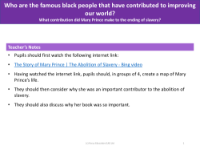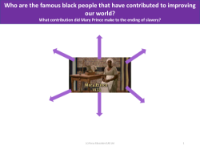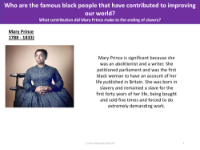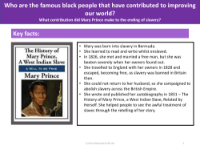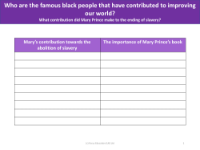What contribution did Mary Prince make to the ending of slavery? - Presentation
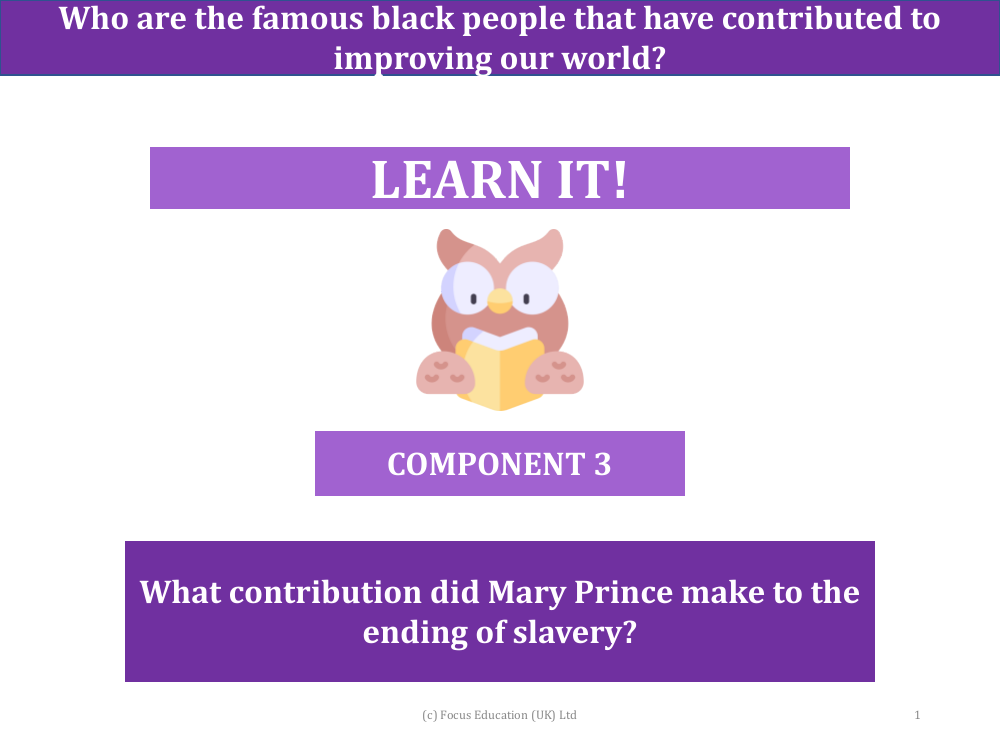
History Resource Description
Mary Prince, born in 1788 and living until 1833, stands as a pivotal figure in the fight against slavery due to her role as an abolitionist and writer. Her life, marked by the harsh realities of slavery, saw her being bought and sold multiple times, enduring extreme labour. Despite these adversities, she made a significant impact on the movement to end slavery. Prince's most notable contribution came through her autobiography, "The History of Mary Prince, a West Indian Slave, Related by Herself," published in 1831. This was the first account of a black woman's life to be published in Britain, and it provided a stark, personal insight into the brutal conditions of enslaved people, thereby fuelling the abolitionist movement.
The key facts of Mary Prince's life are both harrowing and inspiring. Born into slavery in Bermuda, she managed to learn to read and write while still enslaved. Her marriage to a free man in 1826 led to severe punishment by her owners. In 1828, upon travelling to England with her owners, she escaped, taking advantage of Britain's ban on slavery. Although she gained her freedom, she was unable to return to her husband and instead dedicated herself to the wider cause, campaigning to abolish slavery throughout the British Empire. Her autobiography played a crucial role in raising public awareness and shaping public opinion against the cruelty of slavery, thereby contributing to its eventual abolition.
